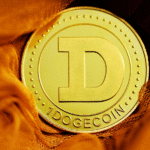In recent years, the financial landscape has witnessed a significant shift as major banks and asset managers increasingly adopt blockchain technology and cryptocurrencies. Institutions such as BlackRock, JPMorgan Chase, and Fidelity Investments are at the forefront of this transformation, lobbying for crypto reform and developing blockchain-based financial products. This article explores the factors driving this institutional crypto adoption, including the tokenization of stocks and bonds, central bank policy changes, and offers insights on how investors can position themselves ahead of this institutional wave.

The Momentum Behind Institutional Crypto Adoption
BlackRock’s Foray into Crypto Assets
BlackRock, the world’s largest asset manager with over $10 trillion in assets under management, has significantly advanced its efforts in integrating cryptocurrencies into its investment portfolio. The firm has long been recognized for its ability to anticipate financial trends and capitalize on emerging markets, and its push into the crypto sector reflects a growing institutional appetite for digital assets.
One of BlackRock’s most notable moves came in June 2023, when the firm filed an application with the U.S. Securities and Exchange Commission (SEC) to launch the first spot Bitcoin exchange-traded fund (ETF). Unlike Bitcoin futures ETFs, which track the price of Bitcoin through derivatives, a spot Bitcoin ETF would allow investors to gain direct exposure to Bitcoin by holding the actual asset. This marked a significant step toward mainstream crypto adoption, as such a fund would provide a regulated and familiar investment vehicle for both institutional and retail investors.
BlackRock partnered with Coinbase as its crypto custodian, leveraging the exchange’s institutional-grade custody services to secure Bitcoin holdings. The move was met with optimism from the market, with Bitcoin’s price rallying on the expectation that the ETF approval would lead to broader institutional participation.

By January 2024, the SEC approved the creation and trading of 11 spot Bitcoin ETFs, including BlackRock’s iShares Bitcoin Trust (IBIT). Within weeks of launch, BlackRock’s ETF quickly gained traction, attracting billions in inflows as investors sought exposure to Bitcoin without the complexities of managing private keys or engaging with crypto exchanges. By May 2024, BlackRock’s ETF had amassed $10 billion in assets under management (AUM), making it one of the fastest-growing ETFs in history.
Beyond its ETF, BlackRock has been exploring blockchain-based financial products. In October 2023, the firm announced the development of a tokenized asset platform, allowing institutional investors to trade and settle financial instruments on-chain. This initiative aligns with the broader trend of real-world asset tokenization, which aims to enhance market efficiency by digitizing traditional assets such as stocks, bonds, and real estate.
BlackRock CEO Larry Fink has been vocal about the potential of digital assets, stating that tokenization of securities could revolutionize capital markets by improving transparency, reducing settlement times, and minimizing counterparty risk. The firm has also highlighted stablecoins for investment as an area of interest, acknowledging their potential role in modernizing payment infrastructure.
With BlackRock leading the charge, it is clear that institutional crypto adoption is no longer a speculative trend but a strategic shift in global finance. As the firm continues to innovate, investors seeking exposure to digital assets may benefit from consulting with a cryptocurrency investment consultant or a digital asset strategy consulting firm to understand the evolving landscape.
JPMorgan Chase’s Blockchain Initiatives
JPMorgan Chase, the largest bank in the U.S. with over $3.7 trillion in assets, has been at the forefront of banking blockchain integration, developing innovative solutions that leverage decentralized technology to enhance traditional financial services. The bank’s strategic approach to blockchain goes beyond cryptocurrency investments, focusing on settlements, payments, and asset tokenization to improve efficiency in global markets.
A landmark initiative in JPMorgan’s blockchain strategy is JPM Coin, a dollar-backed digital currency launched in 2019 to facilitate instantaneous interbank settlements. Unlike volatile cryptocurrencies, JPM Coin is designed to maintain a 1:1 peg with the U.S. dollar, making it a stable and efficient medium of exchange for large financial institutions. By October 2023, JPM Coin was processing approximately $1 billion in daily transactions, demonstrating its growing adoption among corporate clients.

JPMorgan has also been a key player in real-world asset tokenization, leveraging blockchain to digitize traditional financial instruments. The bank’s Onyx blockchain platform, launched in 2020, serves as a hub for institutional blockchain applications, including cross-border payments and collateral management.
A notable example of Onyx’s impact occurred in June 2024, when Fidelity International used the platform to tokenize money market fund shares. These tokenized shares were then transferred to Barclays as collateral, streamlining the transaction and reducing counterparty risk. This innovation highlights how real-world assets on-chain investment consultants are working with financial institutions to enhance liquidity and operational efficiency through blockchain technology.
Additionally, JPMorgan has explored DeFi finance consulting services by testing decentralized finance protocols in partnership with regulatory bodies. In 2022, the bank successfully executed its first DeFi transaction on a public blockchain, demonstrating that institutional-grade DeFi applications could coexist within regulated frameworks.
The implications of JPMorgan’s blockchain initiatives extend beyond the banking sector. As more institutions explore digital asset investment solutions, the demand for blockchain asset investments and portfolio management consultants is expected to rise. Investors seeking exposure to this evolving market may benefit from engaging with a global digital asset consulting firm to navigate the complexities of institutional blockchain adoption.
Fidelity Investments’ Embrace of Digital Assets
Fidelity Investments, a financial giant with over $4.5 trillion in assets under management, has been one of the most active traditional institutions in embracing crypto asset management and blockchain-based financial products. The firm has positioned itself as a leader in digital asset portfolio management, catering to both retail and institutional clients seeking exposure to the growing cryptocurrency market.
Fidelity first entered the crypto space in 2018, launching Fidelity Digital Assets, a subsidiary dedicated to providing Bitcoin custody and trade execution services for institutional investors. At a time when many traditional financial institutions remained skeptical of cryptocurrencies, Fidelity’s move was seen as a bold endorsement of Bitcoin’s long-term potential.
By 2022, Fidelity expanded its offerings to allow 401(k) retirement plan participants to allocate a portion of their savings to Bitcoin, making it the first major retirement provider to integrate cryptocurrency into employer-sponsored plans. This decision underscored the firm’s belief that digital assets are becoming a fundamental component of investment analysis and portfolio management.
Fidelity has also been active in blockchain asset consulting, working with institutional clients to develop blockchain-based financial products. In June 2024, the firm collaborated with JPMorgan Chase to tokenize money market fund shares on the Onyx blockchain, showcasing how blockchain technology can be used to streamline collateral management.
Beyond Bitcoin, Fidelity has explored altcoin investment options, researching emerging cryptocurrencies that could serve as viable store-of-value or utility assets. The firm has also engaged with real world asset consultants to explore the tokenization of private equity and real estate assets, aligning with broader trends in RWA tokenization investment consultants.
To support clients navigating this evolving landscape, Fidelity has enhanced its digital asset management services, offering tailored cryptocurrency investment solutions for high-net-worth individuals and institutional investors. Additionally, the firm has collaborated with security tokens investment consultants to explore how blockchain can improve the efficiency of trading tokenized securities.
Fidelity’s proactive stance on digital assets signals a paradigm shift in wealth management, where traditional investment firms are integrating blockchain-based financial instruments into their long-term strategies. Investors looking to participate in this transition can benefit from engaging with a digital asset management consultant to assess opportunities in digital assets consulting and hedge fund investment companies specializing in blockchain investments.
Drivers of Banking Blockchain Integration
The integration of blockchain technology within the banking sector is accelerating due to several key factors. From tokenization of traditional assets to the rise of central bank digital currencies (CBDCs) and evolving regulatory frameworks, financial institutions are leveraging blockchain to enhance efficiency, security, and accessibility. These innovations are reshaping global finance by enabling new investment opportunities, improving settlement processes, and fostering financial inclusion.
Tokenization of Traditional Assets
Tokenization refers to the process of converting physical or financial assets into digital tokens on a blockchain, enhancing liquidity, security, and accessibility. This concept allows assets such as real estate, commodities, fine art, equities, and bonds to be digitally represented, enabling fractional ownership and broader market participation.
One of the most compelling use cases of tokenization is in real estate investment. Traditionally, purchasing commercial or residential properties requires substantial capital, limiting access to high-net-worth individuals and institutional investors. However, tokenized real estate enables investors to purchase small fractions of properties, making the market more accessible. Platforms like RealT and Mattereum have already begun issuing real-world assets on-chain, allowing investors to trade tokenized property shares on decentralized platforms.
In addition to real estate, fine art tokenization is gaining traction. Companies like Masterworks allow individuals to invest in fractional shares of iconic paintings, democratizing access to high-value assets. Tokenization of commodities, such as gold-backed stablecoins (e.g., Paxos Gold (PAXG) and Tether Gold (XAUT)), offers investors a blockchain-based alternative to traditional precious metal investments.
Financial institutions recognize the benefits of tokenization in enhancing liquidity, reducing transaction costs, and improving settlement efficiency. According to the World Economic Forum, the tokenization of global illiquid assets could unlock over $16 trillion in value by 2030. As more banks explore blockchain-based asset management, they often work with real world asset consultants and RWA tokenization investment consultants to develop regulatory-compliant solutions.
Central Bank Digital Currencies (CBDCs) and Policy Shifts
Governments and financial regulators worldwide are exploring Central Bank Digital Currencies (CBDCs) as part of their digital transformation strategies. CBDCs are state-issued digital currencies designed to modernize financial infrastructure, enhance monetary policy implementation, and improve cross-border payments.
As of 2024, over 130 countries, representing 98% of global GDP, are researching or developing CBDCs, according to the Atlantic Council. These initiatives are expected to reshape the global banking system, influencing how commercial banks integrate blockchain technology.
Global CBDC Initiatives
China’s Digital Yuan (e-CNY)
The People’s Bank of China (PBoC) has been conducting large-scale trials of its digital yuan, which has already processed over $250 billion in transactions. The government aims to reduce reliance on the SWIFT banking system and enhance financial sovereignty.
European Union’s Digital Euro
The European Central Bank (ECB) is expected to roll out a digital euro by 2026, focusing on financial stability and payment efficiency. European banks are preparing for blockchain-based financial infrastructure to integrate CBDCs into their operations.
United States and Stablecoins
While the U.S. has yet to launch a CBDC, policymakers have indicated a strong preference for regulated, dollar-backed stablecoins over a government-issued digital dollar. The U.S. House Financial Services Committee has proposed frameworks for regulating Stablecoins for investment, influencing how banks interact with private stablecoin issuers like Circle (USDC) and Tether (USDT).
Banks preparing for CBDCs often engage with blockchain asset consulting firms to develop compliance frameworks and digital asset investment solutions that align with emerging policies. Additionally, financial institutions are exploring partnerships with DeFi real world assets investment consultants to understand how decentralized finance (DeFi) applications can interact with state-issued digital currencies.
Regulatory Developments and Compliance
The evolving regulatory landscape is one of the most significant drivers of institutional crypto adoption. Banks and asset managers require clear legal frameworks before fully integrating blockchain-based financial products into their operations. Recent regulatory advancements have provided greater clarity regarding the classification, taxation, and reporting requirements for digital assets.
U.S. Regulatory Landscape
In the U.S., the Securities and Exchange Commission (SEC) and the Commodity Futures Trading Commission (CFTC) are establishing guidelines to govern cryptocurrencies, security tokens, and DeFi applications. The approval of spot Bitcoin ETFs in January 2024 signaled a shift toward institutional crypto acceptance, prompting banks to explore new blockchain-based products.
Additionally, the Financial Crimes Enforcement Network (FinCEN) has issued anti-money laundering (AML) guidelines requiring banks to conduct know-your-customer (KYC) compliance for digital asset transactions. Banks working with digital asset consulting for compliance ensure that they meet these evolving requirements while expanding their crypto offerings.

European Union’s MiCA Framework
The EU’s Markets in Crypto-Assets (MiCA) regulation, implemented in 2024, provides a comprehensive legal framework for digital assets, requiring stablecoin issuers and crypto asset service providers (CASPs) to register with regulatory authorities. European banks are now working with real world assets crypto investment consultants and portfolio management consultants to ensure they align with MiCA standards.
Asia-Pacific and Middle East Regulations
Hong Kong and Singapore have developed clear licensing frameworks for digital asset management firms, making them attractive hubs for blockchain-based financial services.
The UAE (Dubai and Abu Dhabi) has launched the Virtual Asset Regulatory Authority (VARA) to oversee crypto exchanges and blockchain firms, supporting banking blockchain integration.
Institutional Collaboration with Digital Asset Consulting Firms
As banks navigate these regulatory developments, they increasingly collaborate with digital assets consulting firms to develop blockchain-based financial products. Institutions looking to integrate crypto asset management often engage digital asset management consultants to structure compliant investment vehicles.
For instance, hedge fund investment companies exploring DeFi real world assets investment consultants seek guidance on tokenized funds that leverage blockchain-based liquidity pools. Similarly, bitcoin investment consultants assist asset managers in structuring regulated Bitcoin and Ethereum investment products.
How Investors Can Position Themselves
With institutional crypto adoption accelerating and banking blockchain integration becoming more prevalent, investors must develop strategic approaches to capitalize on this shift. Diversification, engagement with blockchain-based financial products, and staying informed on regulatory changes can help investors navigate the evolving digital asset landscape.
Diversifying Portfolios with Digital Assets
Traditionally, investment portfolios have consisted of stocks, bonds, commodities, and real estate. However, with the growing acceptance of digital assets, investors are increasingly considering cryptocurrencies and tokenized assets as part of their diversification strategies.
One approach is direct investment in cryptocurrencies, where investors purchase assets such as Bitcoin (BTC), Ethereum (ETH), Solana (SOL), or Polygon (MATIC) through centralized exchanges like Coinbase, Binance, or Kraken or via decentralized exchanges (DEXs) like Uniswap or Curve Finance. However, due to the volatility of individual cryptocurrencies, some investors prefer regulated investment vehicles such as:
- Crypto ETFs and Mutual Funds– The approval of spot Bitcoin ETFs in early 2024 has provided a regulated alternative for institutional and retail investors. Funds such as BlackRock’s iShares Bitcoin Trust (IBIT) and Fidelity’s Wise Origin Bitcoin Trust (FBTC) offer exposure to Bitcoin without requiring direct ownership.
- Stablecoin-backed Yield Products– Investors looking for lower-risk exposure can explore Stablecoins for investment, such as USDC or USDT, which provide liquidity in DeFi lending protocols like Aave and Compound. Stablecoin investment consultants can help investors navigate these options based on their risk tolerance.
- Tokenized Bonds and Equities– Large financial institutions, including JPMorgan and Franklin Templeton, have begun issuing tokenized government bonds and corporate debt, enabling investors to access traditional fixed-income assets on blockchain networks.
Engaging with cryptocurrency investment consultants or a portfolio management consultant can help investors tailor their approach to digital asset portfolio management, ensuring they align with their risk appetite and financial goals.
Engaging with Blockchain-Based Financial Products
Beyond cryptocurrencies, blockchain technology is transforming asset ownership and financial products through tokenization. This process enables fractional ownership of real-world assets (RWAs), such as real estate, commodities, and infrastructure investments, allowing investors to access high-value assets with smaller capital commitments.
Real Estate Tokenization
One of the most promising applications of blockchain in finance is real estate tokenization, where properties are divided into digital shares that can be bought and sold on blockchain platforms. Companies like RealT and Propy enable investors to acquire fractional ownership of properties worldwide, generating passive income through rental yields.
For example, an investor who might not have the capital to purchase a $1 million commercial property outright could invest $10,000 into tokenized real estate shares, earning proportional rental income while benefiting from potential property value appreciation. Real world asset consultants and real-world assets crypto investment consultants can provide insights into regulatory frameworks and investment structures for these emerging opportunities.
Tokenized Commodities and Securities
Beyond real estate, tokenization has extended to precious metals, energy resources, and traditional securities. Some popular examples include:
- Gold-backed Stablecoins– Assets such as Paxos Gold (PAXG) and Tether Gold (XAUT) allow investors to own fractional gold without the need for physical storage.
- Tokenized Money Market Funds– JPMorgan’s Onyx blockchain has facilitated the tokenization of money market fund shares, enabling institutions like Fidelity International to leverage these assets for collateralized transactions.
Engaging with blockchain asset consulting and digital asset strategy consulting firms can help investors understand the nuances of these products and determine their suitability within a diversified investment portfolio.
Staying Informed on Regulatory Changes
The regulatory landscape surrounding digital assets is constantly evolving, with governments worldwide implementing new policies that affect taxation, reporting requirements, and compliance. Investors who stay ahead of these changes can better protect their portfolios and identify new opportunities.
Key Regulatory Developments to Watch
SEC Oversight in the U.S.
The U.S. Securities and Exchange Commission (SEC) has increased scrutiny on crypto exchanges, DeFi platforms, and tokenized securities. New compliance measures, including anti-money laundering (AML) and know-your-customer (KYC) requirements, will impact institutional and retail investors.
MiCA Regulations in Europe
The EU’s Markets in Crypto-Assets (MiCA) regulation, set to take full effect by 2024, establishes guidelines for stablecoins, digital asset service providers, and security token issuers. Investors with exposure to European crypto markets should consider working with digital asset consulting for compliance firms to ensure they meet new legal requirements.
Asia-Pacific and Middle East Initiatives
Hong Kong, Singapore, and the UAE have introduced clear licensing frameworks for crypto exchanges and DeFi platforms, making them attractive crypto investment hubs. Understanding these regulatory landscapes with the help of RWA DeFi investment consultants can be crucial for global investors.
Conclusion
The embrace of blockchain technology and cryptocurrencies by major banks and asset managers marks a transformative period in the financial industry. Institutions like BlackRock, JPMorgan Chase, and Fidelity Investments are leading the charge, driven by the benefits of asset tokenization, evolving central bank policies, and a maturing regulatory landscape. For investors, this institutional momentum presents an opportunity to reassess and potentially diversify their portfolios with digital assets. By engaging with knowledgeable consultants and staying abreast of industry developments, investors can position themselves strategically in this evolving market.
Stay Informed with Kenson Investments
Kenson Investments provides educational resources to help individuals navigate the evolving world of finance. Through in-depth articles and insightful content, they break down complex financial concepts, empowering readers with the knowledge to make informed decisions. Explore their latest educational materials and stay ahead in the ever-changing financial landscape.
Disclaimer: The information provided on this page is for educational and informational purposes only and should not be construed as financial advice. Crypto currency assets involve inherent risks, and past performance is not indicative of future results. Always conduct thorough research and consult with a qualified financial advisor before making investment decisions.
“The crypto currency and digital asset space is an emerging asset class that has not yet been regulated by the SEC and US Federal Government. None of the information provided by Kenson LLC should be considered as financial investment advice. Please consult your Registered Financial Advisor for guidance. Kenson LLC does not offer any products regulated by the SEC including, equities, registered securities, ETFs, stocks, bonds, or equivalents”














